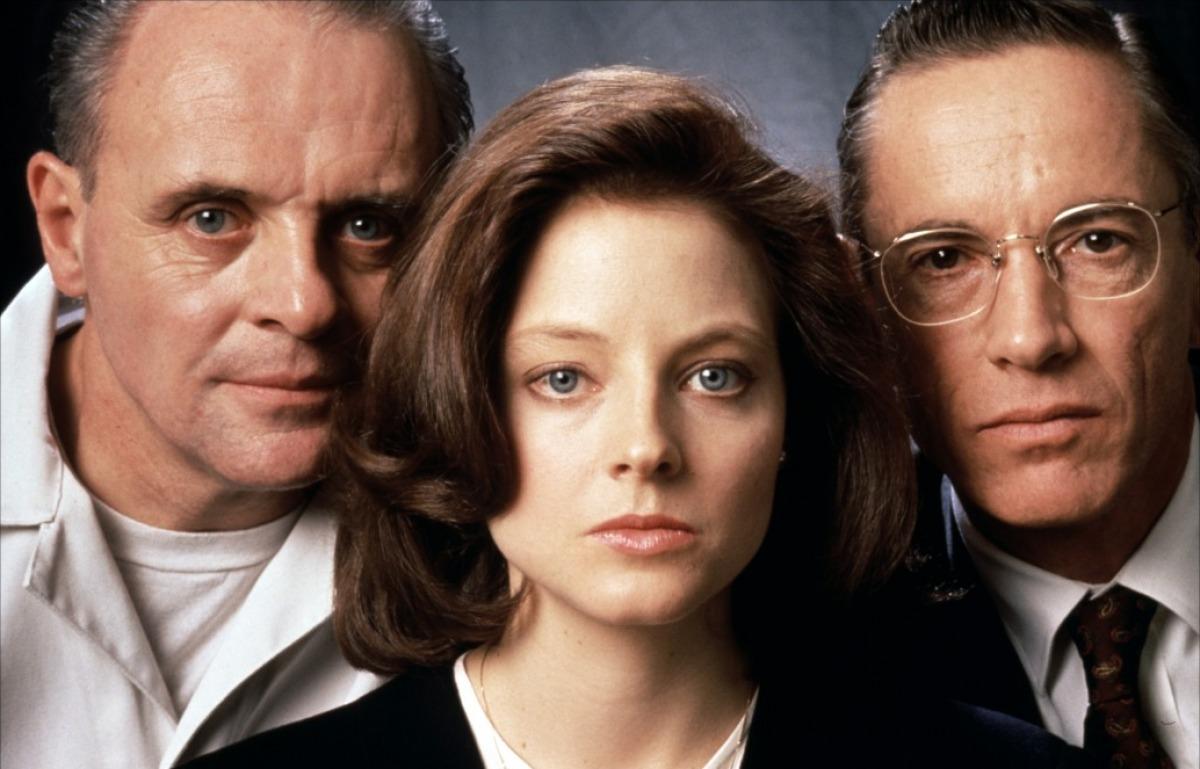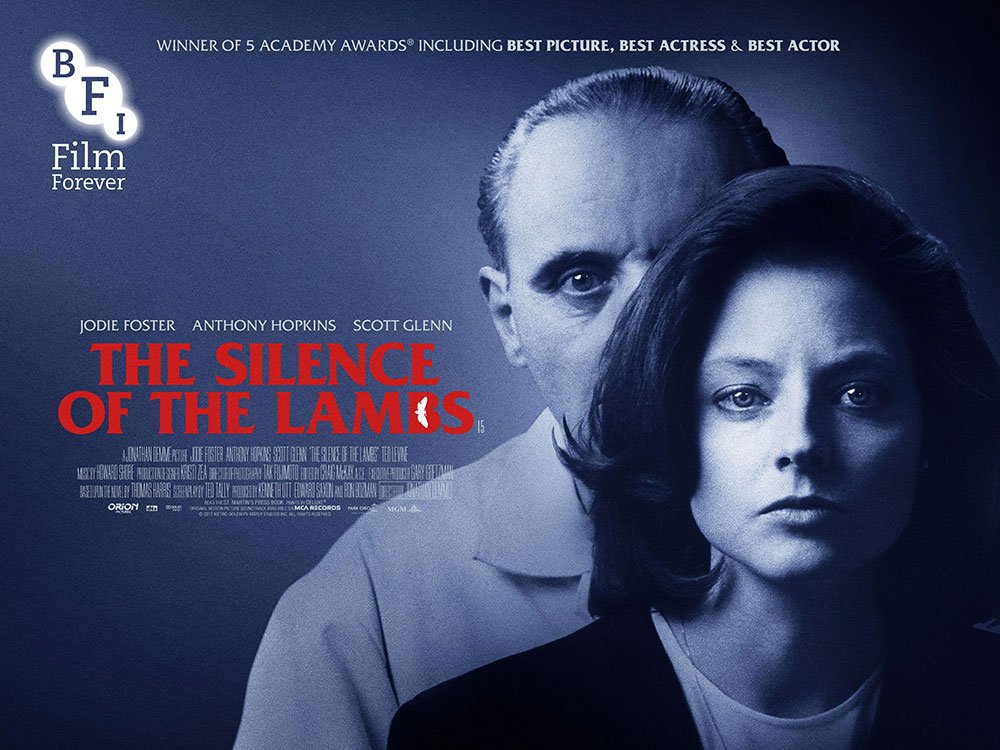“The Silence of the Lambs” (1991)

“The Silence of the Lambs,” directed by Jonathan Demme and based on Thomas Harris’s novel, is a landmark film that continues to captivate audiences with its gripping narrative, complex characters, and chilling atmosphere. Released in 1991, the film stands as a timeless masterpiece in the psychological thriller genre, earning critical acclaim and multiple Academy Awards, including Best Picture.
The story follows Clarice Starling (played by Jodie Foster), a young FBI trainee with a troubled past, as she is tasked with interviewing the brilliant but monstrous psychiatrist Dr. Hannibal Lecter (portrayed by Anthony Hopkins). Dr. Lecter, known for his cannibalistic tendencies and unmatched intellect, becomes both a mentor and a manipulative adversary in Clarice’s quest to capture another serial killer known as Buffalo Bill.

Central to the film’s allure is the intense psychological interplay between Clarice Starling and Hannibal Lecter. Their exchanges are a mesmerizing dance of intellect, vulnerability, and underlying menace. Dr. Lecter, confined in a high-security asylum, exudes a calm and unnerving charm, manipulating Clarice with his keen insights into her psyche while gradually revealing hints about Buffalo Bill’s identity.
The film’s exploration of power dynamics and psychological manipulation is further amplified by its portrayal of Buffalo Bill (portrayed by Ted Levine), a deranged killer who skins his victims to create a “woman suit.” Buffalo Bill’s grotesque actions serve as a stark contrast to Dr. Lecter’s refined intelligence, highlighting the terrifying spectrum of human depravity that Clarice must confront in her pursuit of justice.

Thematically, “The Silence of the Lambs” delves into the depths of human darkness and the complexities of identity. Clarice Starling, a young woman navigating a male-dominated field, faces sexism and skepticism from her colleagues while grappling with her own traumatic memories. Her determination to succeed and her empathy for the victims drive her relentless pursuit of justice, making her a resilient and compelling protagonist.
Visually, the film is a masterclass in cinematography and atmospheric storytelling. From the dimly lit corridors of Dr. Lecter’s asylum to the eerie isolation of Buffalo Bill’s lair, each setting enhances the film’s tension and psychological depth. The use of close-up shots and subtle camera movements intensify the characters’ emotional states, immersing viewers in a world where danger lurks around every corner.
:max_bytes(150000):strip_icc()/silence20of20the20lambs_0-c9cff20e8d054953873bf9bf609d9def.jpg)
Anthony Hopkins delivers an iconic performance as Dr. Hannibal Lecter, earning him an Academy Award for Best Actor despite limited screen time. Hopkins’s portrayal of the brilliant yet sadistic psychiatrist remains indelibly etched in cinematic history, defining the character as the epitome of intelligent evil and elevating “The Silence of the Lambs” to a new level of psychological intensity.
Jodie Foster’s portrayal of Clarice Starling is equally compelling, portraying her with a mix of vulnerability and steely determination that resonates with audiences. Foster’s nuanced performance captures Clarice’s inner strength and moral integrity, making her a feminist icon and a role model for resilience in the face of adversity.

Furthermore, Jonathan Demme’s direction ensures that “The Silence of the Lambs” is not merely a suspenseful thriller but also a profound character study and exploration of human nature. The film’s pacing, narrative structure, and meticulous attention to detail create a haunting atmosphere that lingers long after the credits roll, leaving viewers contemplating the depths of good and evil within us all.

In conclusion, “The Silence of the Lambs” remains a timeless classic that transcends its genre, offering a gripping blend of psychological thriller, character-driven drama, and profound thematic exploration. Through its unforgettable performances, atmospheric cinematography, and haunting storytelling, the film continues to captivate and unsettle audiences, cementing its place as one of cinema’s most enduring and influential works.
As a testament to the power of storytelling and the complexities of the human psyche, “The Silence of the Lambs” continues to inspire filmmakers and audiences alike, reaffirming its status as a landmark achievement in cinematic history.










